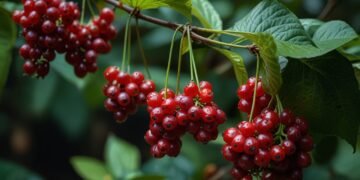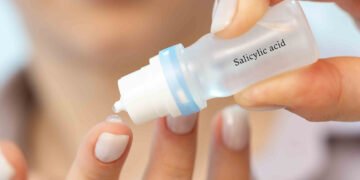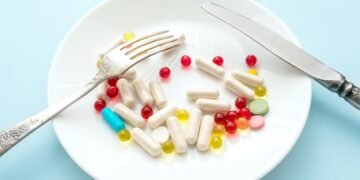As we age, our body’s collagen production naturally decreases, leading to wrinkles, crepey skin, and other signs of aging. Collagen is a vital protein that gives structure to our skin, body, and connective tissues. Maintaining healthy collagen levels is crucial for a youthful appearance and overall health.
Fortunately, there are several natural techniques to boost collagen production without resorting to expensive treatments or invasive procedures. By incorporating specific foods, protecting your skin from damage, and utilizing certain natural remedies, you can help restore your skin‘s natural collagen levels and achieve a more youthful look.

Key Takeaways
- Natural techniques can boost collagen production without invasive procedures.
- Specific foods and nutrients support collagen health.
- Protecting your skin from damage is crucial for collagen maintenance.
- Certain natural remedies can help restore collagen levels.
- A healthy lifestyle supports overall body health, including skin appearance.
Understanding Collagen and Its Importance for Youthful Skin
The importance of collagen for healthy, youthful-looking skin cannot be overstated. Collagen is the most abundant protein in the human body, making up approximately 25% to 35% of all proteins. It is a crucial component that provides structure, elasticity, and strength to the skin.
What Is Collagen and Why Does It Matter?
Collagen is a type of protein that forms a strong network of fibers, giving skin its firmness and suppleness. As the body’s collagen production begins to decline, signs of aging such as fine lines, wrinkles, and sagging skin start to appear. Maintaining healthy collagen levels is essential for a youthful appearance. Collagen’s role extends beyond skin health; it also supports the health of tendons, ligaments, muscles, and the gastrointestinal tract.
How Collagen Production Decreases with Age
Collagen production naturally decreases with age, starting as early as the mid-twenties. This decline accelerates after the age of 30, with production decreasing at a rate of approximately 1-1.5% per year. Several factors contribute to this decline, including:
- Environmental factors like UV exposure, which can damage collagen fibers and lead to abnormal elastin production.
- Lifestyle choices such as smoking, high sugar consumption, and excessive alcohol intake, which create free radicals that break down collagen.
- Hormonal changes, particularly during menopause, which can dramatically accelerate collagen loss.
As collagen production decreases, the skin’s structural integrity weakens, leading to the characteristic signs of aging. Understanding these factors is crucial for developing strategies to maintain healthy collagen levels and preserve youthful skin.
Collagen-Boosting Foods: Eat Your Way to Younger Skin
A well-balanced diet rich in specific nutrients can significantly boost collagen production, leading to healthier, younger-looking skin. As we age, our bodies undergo various changes that affect collagen synthesis. Fortunately, certain foods can help support this process.
Protein-Rich Foods That Support Collagen Production
Consuming protein-rich foods is essential for collagen production since collagen is a protein itself. Lean meats like chicken and turkey, fish such as salmon, and eggs are excellent sources of protein. Additionally, plant-based options like legumes, lentils, and quinoa provide the necessary building blocks for collagen synthesis.
Vitamin C-Rich Foods for Enhanced Collagen Synthesis
Vitamin C is crucial for collagen production as it acts as a co-factor for the enzymes involved in collagen synthesis. Foods rich in vitamin C include citrus fruits like oranges and lemons, berries such as strawberries and blueberries, and leafy greens like spinach and kale. Incorporating these foods into your diet can enhance collagen production and improve skin health.
Minerals That Promote Collagen: Zinc and Copper Sources
Zinc and copper are vital minerals that support collagen production. Zinc helps regulate the extracellular matrix where collagen fibers are organized, while copper peptides stimulate collagen production and strengthen the bonds between collagen fibers.  oysters, crab, pumpkin seeds, and cashews. Consuming a balanced diet that includes these foods can support ongoing collagen production.
oysters, crab, pumpkin seeds, and cashews. Consuming a balanced diet that includes these foods can support ongoing collagen production.
- Zinc activates proteins essential for collagen synthesis and helps regulate the extracellular matrix.
- Copper peptides stimulate collagen production and activate lysyl oxidase, an enzyme that strengthens collagen fibers.
- Oysters and crab are exceptional sources of both zinc and copper.
- Plant-based sources include pumpkin seeds and cashews.
By incorporating these collagen-boosting foods into your diet, you can support your skin’s health and maintain a more youthful appearance.
Bone Broth: Nature’s Powerful Collagen Booster

To rejuvenate your skin and boost collagen, consider incorporating bone broth into your daily routine. Bone broth is rich in collagen, which is essential for maintaining youthful skin. You can either buy bone broth in grocery stores or make it yourself. According to Dr. Bradley, it’s recommended to buy only organic bone broth or cook broth from the bones of organically raised animals to avoid contaminants.
The Science Behind Bone Broth’s Collagen Benefits
Bone broth’s collagen benefits are rooted in its rich composition of collagen-rich tissues. Using a variety of bones such as joint bones, knuckles, feet, and marrow bones maximizes collagen content. The addition of 1-2 tablespoons of apple cider vinegar during cooking helps extract more collagen and minerals through a gentle acidification process.
This process enhances the bioavailability of collagen precursors, making it easier for the body to utilize them. As a result, consistent daily consumption of 8-16 ounces of bone broth can yield better results for skin elasticity than occasional larger quantities.
How to Prepare and Consume Bone Broth for Maximum Results
To prepare bone broth, use high-quality bones from pasture-raised animals, which contain higher nutrient profiles and fewer contaminants. Incorporating bone broth into your routine can be simple: sip it as a warm beverage, use it as a base for soups and stews, or reduce it to use in sauces for added nutrition and flavor.
For maximum benefits, consume bone broth consistently, ideally 8-16 ounces daily. This regularity helps your body utilize collagen precursors efficiently, leading to improved skin elasticity and overall health.
Plant-Based Collagen Boosters for Skin Rejuvenation
For those seeking a natural approach to maintaining youthful skin, several plant-based collagen boosters have shown promising results. These natural ingredients can be incorporated into daily routines to support collagen production and enhance skin health.
Aloe Vera: The Ancient Collagen Stimulator
Aloe vera has been used for centuries for its healing properties, including its ability to stimulate collagen production. It is rich in vitamins A, C, and E, which are essential for maintaining healthy skin. Aloe vera’s anti-inflammatory properties also help soothe the skin, reducing the appearance of fine lines and wrinkles.

Ginseng: Traditional Medicine for Collagen Support
Ginseng has been a staple in traditional medicine for its numerous health benefits, including its ability to support collagen production. It is known to improve skin elasticity and reduce signs of aging. Ginseng’s antioxidant properties help protect the skin from environmental stressors, promoting healthier skin.
Cilantro and Other Herbs That Enhance Collagen Production
Cilantro, or coriander leaf, is not just a culinary herb; it also contains vitamin C and linolenic acid, which are beneficial for collagen production and skin health. Other herbs like basil, parsley, and rosemary are rich in flavonoids that protect skin cells from oxidative damage. Incorporating these herbs into meals can provide a consistent supply of phytonutrients that support collagen production.
| Herb | Benefit for Collagen Production |
|---|---|
| Aloe Vera | Stimulates collagen production, rich in vitamins A, C, and E |
| Ginseng | Improves skin elasticity, antioxidant properties |
| Cilantro | Rich in vitamin C and linolenic acid, supports collagen production |
By incorporating these plant-based collagen boosters into your daily routine, you can support your skin’s health and maintain a youthful appearance. As
“The power of nature is reflected in the simplicity and effectiveness of these plant-based ingredients.”
, it’s clear that nature offers a wealth of resources for skin rejuvenation.
Sun Protection and Hydration: Preserving Your Natural Collagen

Protecting your skin from the sun and maintaining proper hydration are crucial steps in preserving your natural collagen. Collagen is a vital protein that gives structure to your skin, and its production decreases with age. Two significant factors that impact collagen health are UV exposure and dehydration.
How UV Damage Destroys Collagen (and How to Prevent It)
UV damage from the sun or tanning beds can significantly accelerate collagen breakdown. UV rays penetrate deep into the skin, causing damage to collagen fibers and leading to wrinkles and sagging skin. To prevent this, using a broad-spectrum sunscreen with a high SPF is essential. Look for sunscreens containing ingredients like zinc oxide or titanium dioxide, which provide effective protection against UVA and UVB rays.
The Role of Hydration in Maintaining Collagen Health
Proper hydration is vital for maintaining healthy collagen. Water molecules bind to collagen fibers, maintaining their flexibility and resilience. Dehydration can lead to dryness, wrinkles, and reduced skin elasticity. Drinking plenty of water and consuming water-rich foods like cucumbers and watermelon can help keep your skin hydrated. Additionally, hyaluronic acid, which can hold up to 1,000 times its weight in water, works synergistically with collagen to maintain skin plumpness and prevent fine lines.
To support collagen health, it’s recommended to drink 8-10 glasses of water daily and include hydrating foods in your diet. By combining sun protection and proper hydration, you can help preserve your natural collagen and maintain healthier, more youthful-looking skin.
Conclusion: Creating Your Natural Collagen-Boosting Routine
To achieve a more youthful appearance, it’s essential to develop a comprehensive collagen-boosting routine. This involves a multi-faceted approach that combines dietary changes, topical treatments, and lifestyle modifications tailored to your specific needs and skin concerns.
A nutrient-dense diet rich in protein, vitamin C, zinc, and copper provides the essential building blocks for natural collagen synthesis. For those considering supplements, hydrolyzed collagen peptides have shown promising research results, with studies indicating improvements in skin elasticity and joint pain when consumed consistently at 2.5-15g daily.
A comprehensive routine should include daily sun protection, adequate hydration (both internal and topical), regular consumption of bone broth or plant-based collagen boosters, and avoidance of collagen-depleting habits like smoking and excessive alcohol consumption. While individual results vary, most people report noticeable improvements in skin firmness, joint comfort, and overall appearance within 4-8 weeks of implementing a consistent collagen-boosting regimen.
Eating a healthy diet is crucial, as it provides the necessary nutrients for collagen production. If you’re considering collagen supplements, it’s recommended to consult with your doctor first. One study found that oral collagen supplements could help heal wounds and maintain skin elasticity.
By incorporating these elements into your daily routine, you can help manage joint pain and maintain healthy, youthful skin. A well-rounded approach is the best way to boost collagen production and achieve a more radiant appearance.








































Discussion about this post